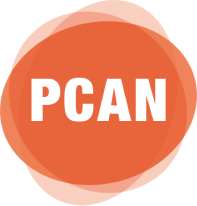The Commission has a suite of potential projects that would be suitable for undergraduate/Masters research projects See table below for details. To apply to undertake any of these projects, please contact: leedsclimate@candocities.org
Carbon Impact of Clean Air Zone
The CAZ is based on charging buses, HGVs, taxis and private-hire vehicles that fail to meet high emissions standards for entering the city. The CAZ is based on emissions of NOx and particulates. This project would model the carbon impact of the Leeds Clean Air Zone
Climate Resilience
To compile a database of information on Climate Resilience activity across the city with a focus on identifying examples of climate resilience projects actually on the ground in Leeds
Land Use Climate Impacts
To research the carbon saving potential of different land use options
Climate Resilient Housing
To research how other cities are developing climate resilient housing
Farmers’ willingness to accept compensation for storing flood water on their land.
Storing water on the landscape could help avoiding losses in built—up areas but at the moment there are little in terms of arrangements that would support contractual water storage on agricultural land. Such storage causes losses to farmers, so they should be compensated in some way for doing it. The comparative losses in built-up areas and farming areas support the feasibility of such approach. But public acceptability of it, as well as willingness to accept compensation is not much studied. This could be something a Master’s student could do. Jouni Paavola, Martin Dallimer and Julia Martin Ortega would all be able to supervise a student on this topic, or perhaps a small group of students to build up an evidence base.
As part of the Payment for Eco-systems Services (PES) or Earned Recognition (ER) for farmers doing stuff, this would be really interesting in helping to shape our understanding but to influence National Policy with greater clarity.
Public perceptions of managed realignment schemes
Managed realignment is a relatively new approach to coastal management, used to provide compensatory habitat where sea level rises or coastal developments result in the loss of important intertidal habitats such as mudflats and saltmarsh.
A common issue in managed realignment schemes is that of gaining public acceptance and support for them. Often there is public opposition to the idea of ‘losing’ land to the sea and using ‘soft’ rather than ‘hard’ defences. Whilst some research has been carried out to investigate the reasons behind negative public perceptions of managed realignment schemes, there appears to be almost no information on whether attitudes towards schemes have changed once they have been in place for several years. This would be useful to explore: are there examples of managed realignment projects where attitudes towards them have changed from negative to positive? If so, in what circumstances? This could make an interesting dissertation topic for a student interested in the social and economic impacts of managed realignment (possibly two case studies of schemes in different locations?) and provide useful information to inform managers of future schemes.
Flood Warden Information Access Routes
The Environment Agency and Local Authorities liaise with hundreds of flood wardens in differing stages, including; long-standing groups, post-event groups, just beginning groups, interested but unsure of next steps groups, existing community groups looking to offer flood support and advice but not necessarily as official wardens, lone flood wardens.
Throughout these stages there is a vast array of information available for wardens to access, but the access points are multiple and not always clear.
This project would research and collate the information used and provided to flood wardens, from formal to informal peer networks, and investigate possible new methods to provide clear, up to date and consistent information to Flood Wardens at one point of access. Key issues to consider would be:
- Warden technological access, e.g. wardens with no smart phones or internet. What would the impact be on them/providers. What provisions would have to be put in place?
- Minimising duplication across professional partners e.g. one platform pulling together information across organisations
- Reducing staff maintenance time, looking at the long-term upkeep and commitment needed (financial and manpower)
- Utilising existing communication methods, such as apps, widgets, data provision, future digital possibilities
- Understanding the client needs, both owner and user and catering to this accordingly.
Photo credit: Unsplash



